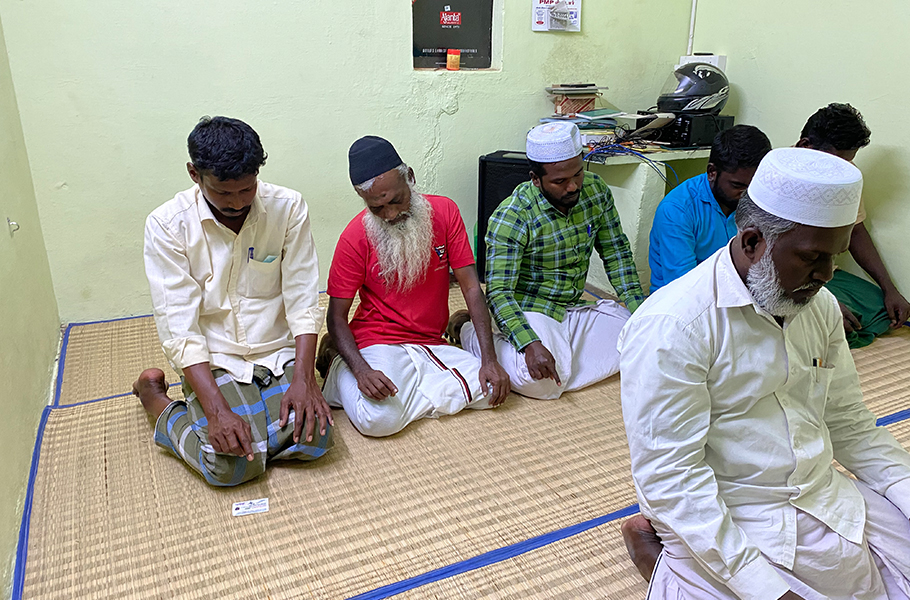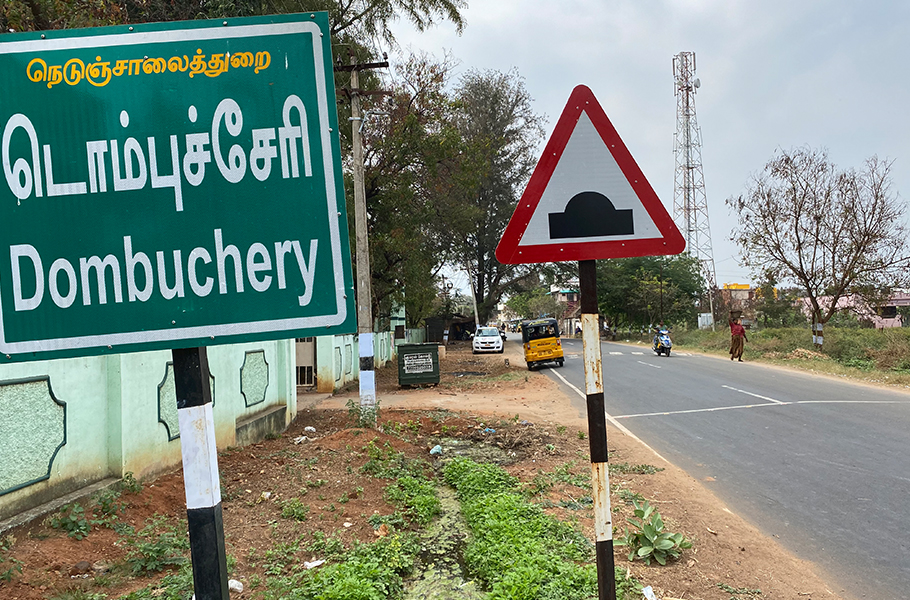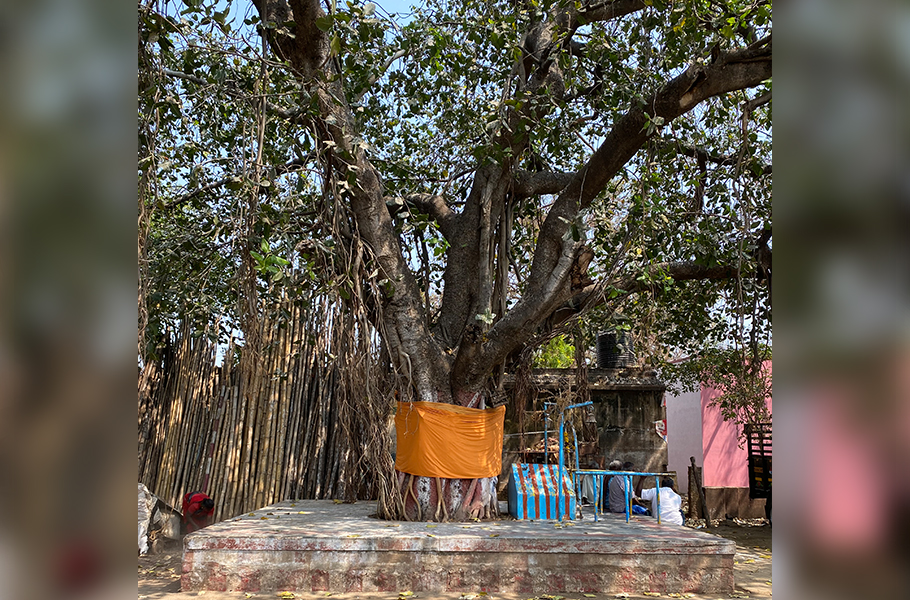
- Home
- India
- World
- Premium
- THE FEDERAL SPECIAL
- Analysis
- States
- Perspective
- Videos
- Sports
- Education
- Entertainment
- Elections
- Features
- Health
- Business
- Series
- In memoriam: Sheikh Mujibur Rahman
- Bishnoi's Men
- NEET TANGLE
- Economy Series
- Earth Day
- Kashmir’s Frozen Turbulence
- India@75
- The legend of Ramjanmabhoomi
- Liberalisation@30
- How to tame a dragon
- Celebrating biodiversity
- Farm Matters
- 50 days of solitude
- Bringing Migrants Home
- Budget 2020
- Jharkhand Votes
- The Federal Investigates
- The Federal Impact
- Vanishing Sand
- Gandhi @ 150
- Andhra Today
- Field report
- Operation Gulmarg
- Pandemic @1 Mn in India
- The Federal Year-End
- The Zero Year
- Science
- Brand studio
- Newsletter
- Elections 2024
- Events
- Home
- IndiaIndia
- World
- Analysis
- StatesStates
- PerspectivePerspective
- VideosVideos
- Sports
- Education
- Entertainment
- ElectionsElections
- Features
- Health
- BusinessBusiness
- Premium
- Loading...
Premium - Events

Has religious conversion helped Dalits escape caste scourge?

In his youth, Ganeshan was full of zeal to fight against a system where the odds are stacked against the Dalits. The dehumanisation of one Hindu community by another (claiming to be superior and upper caste) made little sense to Ganeshan. He would often knock the doors of district authorities seeking justice against caste atrocities in his small village — Dombuchery — in...
In his youth, Ganeshan was full of zeal to fight against a system where the odds are stacked against the Dalits. The dehumanisation of one Hindu community by another (claiming to be superior and upper caste) made little sense to Ganeshan. He would often knock the doors of district authorities seeking justice against caste atrocities in his small village — Dombuchery — in Tamil Nadu’s Theni district.
But Ganeshan has since become Abdul Razak, a convert to Islam. The transformation didn’t come easy, though. He resisted the temptation to shun the religion he was born into and embrace a new identity for 10 long years.
In the 1980s, Ganeshan emerged as a lone crusader in the fight for social justice in his village. However, he often faced disappointment when it came to caste-related matters. Even though he continued the struggle, something inside Razak, now 55, changed after one particular case.
“A 15-year-old Dalit girl was beaten with a broomstick in front of everyone in her school by a caste Hindu family to show the little girl her place in society. When I came to know about it, I filed a petition through a telegram to the police in Kumbakonam district who were taking cognisance of atrocities against Dalits,” Razak recalls.
The villagers were hopeful of getting justice. “Right from the collector to senior police officers, everyone visited the village and an inquiry was conducted.” But the investigations lead to nowhere. “Finally, the police told me that they could only give protection to me during the inquiry but couldn’t take any action against the accused persons. I felt so helpless,” he says.
This was not the first such instance. Razak faced similar helplessness on a number of occasions. “I have fought for various causes but every time it was a caste-related matter, the case would finally hit a deadend with no action against the perpetrators,” Razak recalls.
That was the last straw. By the early 1990s, Ganeshan embraced Islam before leaving his village and became Abdul Razak. “It’s been more than 30 years since I converted to Islam. I realised there will never be an equal footing for Dalits.”
Razak’s personal struggle and dilemma started around the same time when roughly 150 families in Meenakshipuram in nearby Tirunelveli district embraced Islam en masse in 1981 owing to caste oppression and a long history of violence. The incident in Meenakshipuram – or Rahmat Nagar as the converts call it now — created a major upheaval both in and outside the state. The BJP, which was officially founded just a year before, sent a huge delegation led by Atal Bihari Vajpayee to the village on a ‘fact-finding’ mission. As the party made it to the Lok Sabha in 1984 with two seats, Rahmat Nagar went on to become a rallying point for its ‘Hindu Khatre Mei Hai’ project (Hindus are in danger).
More than 40 years since the Meenakshipuram incident, the BJP continues with its drum beat that ‘Hindus are in danger’ — in a country where Hindus make up 79.8 per cent of the total population — even as Dalits face increasing discrimination and caste violence by fellow Hindus who consider themselves superior.
The situation for the Dalits hasn’t changed much over the years. In Razak’s own village, Dombuchery, the scourge of caste continues to haunt the Dalit villagers. This, despite attaining good education and a decent lifestyle.

It’s all about caste
“We are educated and we can solve our problems through legal means. But, the caste Hindus in the village want us to be at their mercy. To assert their authority, they started attacking us and our property. We couldn’t afford to stay quiet,” says Mohammed Ismail from Theni, who recently embraced Islam.
Mohammed Ismail, along with 10 other families in Dombuchery, converted to Islam as recently as December 2021 following a violent clash between Dalits and caste Hindus in November of that year.
Now, they hope to find closure and some peace. “We understand that the Dalit identity and the stigma attached to it would not go away so soon. But, socially we feel secure,” says Mohammed Ali Jinnah, a resident of Dumbuchery and Theni district secretary of Tamil Puligal Party.
There are a host of others who agree with Jinnah. Aarif, formerly known as Pradeep, is a resident of Thondamuthur village in Coimbatore. “In our community, I was the only one to pass Class 10 following which I managed to get a job at a company in [Coimbatore] city. As my condition began to improve, it started to bother the caste Hindus in the village,” Aarif recalls. A slew of big and small instances attacking his caste identity followed. One such incident in 2001 culminated in physical assault on him by a bunch of caste Hindu men.
“I didn’t want to fight back and lose whatever little I had gained,” says Aarif, who soon embraced Islam and moved to the city.
Over the years, many Dalits embraced Islam following caste-based crimes across several pockets in Tamil Nadu.
Although there is no official data on the exact numbker of Dalits who have embraced Islam over the decades, activists on the ground believe the number may go up to as high as 1 lakh people who voluntarily renounced Hinduism and converted to Islam. The mass conversion event that happened in Dombuchery village in December is the latest such incident. The family members insist that years of battling discrimination, violence and false cases foisted on educated youths have forced them to embrace Islam (read detailed report here).
According to Ibhrahim (formerly known as Ilavenil), a functionary of the Tamil Puligal outfit, it is difficult to arrive at an exact number also because not all conversions happen in huge public functions. While people in rural areas mostly embrace Islam in groups, there have been individual instances in urban pockets.
But what matters is their new reality which they claim has changed their lives for good.
Has their fate changed?
Aarif, who now owns an autorickshaw, says after converting to Islam he never felt any resentment from his Muslim bethrens. “I am married to a Muslim woman whose family was following Islam for generations. My Dalit identity from my past life didn’t matter to her family,” Aarif says, brushing aside concerns that “religious conversions can’t rid one of their Dalit identity”.
Aarif also shares examples of others who followed him. “I did not suggest anyone to come and join me in embracing Islam. But many did so of their own volition,” he says.
Those who were earlier forced to clean drains for a living, Aarif adds, were helped by fellow Muslim men in setting up small businesses, like a pan or tea shop, so that they could lead a dignified life.
Of course, things don’t change overnight. “Once you come out of the shackles of Hinduism, opportunities will be plenty in the same locality. It does take time, though. Twenty years ago, when I went seeking a job after completing Class 10, my caste Hindu friends were offered dignified jobs while I was asked to clean toilets after they found my caste from the place I come from,” says VJ Ashik, who converted around 17 years go. Now, Ashik runs a small garment business. “I must also confess that it didn’t happen overnight after converting to Islam. It took its own time. I too had to change my place of residence to get rid of my old identity,” Ashik adds.
He is, however, happy that his children won’t have to face the same struggle and are in a far better position to move ahead in life.
Razak, who felt convinced to convert after working at a Muslim man’s farm where for the first time in life he felt he was getting equal respect and dignity, says, “Over the years, I have felt I took the right decision. Now, I am being respectfully called ‘bhai’ even by the caste Hindus. No more casteist slurs are hurled at me or my family members.”
It is this self-respect and dignity for which many among the Dalits are ready to forego the reservation benefits and embrace Islam.
Commenting on this, writer Stalin Rajangam says Dalits embracing Islam is a message to the authorites and the society. “Earlier, people embraced Christianity for their services and better livelihood opportunities. But, now people embrace Islam for self-respect. They are upset with the government’s inaction on atrocities against Dalits.”
Rajangam points out another aspect. “People embracing Christianity do it of their own volition and most of the time without any big announcements. But those converting to Islam do it in public functions to send across a message. Of course, that doesn’t mean they embrace Islam under some pressure or these are forcible conversions,” says Rajangam.
The only pressure, Razak adds, is the affliction of caste and the violence committed against Dalits day in and day out by the dominant Hindus.
According to Rajangam, people are able to shed their Dalit identity over the years after embracing Islam. “Even if people convert to Christianity, they have to bear the caste identity. But for those embracing Islam, their identity gets erased after a few genertions. It is like liberating themselves from the caste system and moving towards equality.”
Writer Shalin Maria points out that there are indicators showing that those converting to Islam have over the years also fared well economically.

“Viduthalai Chiruthaigal Katchi (VCK) leader Thol. Thirumavalavan’s research work on Meenakshipuram conversion proves that Dalits who converted to Islam are better off now. They have got better social and financial security. Since Islam is against levying interests, people get interest-free loans from their fellow Muslims and it helps improve their living conditions,” she says.
Back in 2017, Thol. Thirumavalavan shared the findings of his research at a seminar on ‘Criminal justice system and victimology’ at Madurai Kamaraj University. As a research scholar of Manonmaniam Sundaranar University, Thol. Thirumavalavan found the Dalit families that converted to Islam in Meenakishipuram in 1981 to have come out of the stigma and discrimination imposed on them by the caste system.
According to him, the families had also seen considerable improvement on the economic front. “While a majority of them were landless, they have now ventured into small businesses like setting up a petty shop or tea shop because of the social acceptance they have gained through their new identity,” he said at the time.
But what about those left behind, those who continue to be identified as Dalits?
Those left behind
“Our situation hasn’t changed over the years. We are still violated by the caste Hindus and not allowed inside their houses in the village,” says a woman who identifies herself as wife of Rangaraj, a member of the Tamil Puligal Katchi in Annur, Coimbatore district.
She and a few others like her are sceptical if a new religion will help them come out of old (caste) stigma and live a liberated life.
“What would change?” she asks.
“Even if we embrace Islam and stop going to temples, will anyone be able to change our identity in this village? We will still be identified as the ‘Dalits who converted to Islam’,” she adds.
It is not just Rangaraj’s wife, but more and more Dalits in the area — Annur, Thudiyalur and Mettupalayam region – are asking the same question.
S Chinnaraj, a resident of Nehru Nagar in Thudiyalur, where about 10 families embraced Islam in 2020, doubt they could ever get rid of the ‘Dalit tag’ unless they change place of residence.
Of course, Chinnaraj’s neighbour Ashik disagrees.
“When I was a Dalit, I was not allowed to walk on the ‘caste Hindus Street’. But today, I own a garment shop on the same street in a building owned by a caste Hindu,” Ashik declares triumphantly.
Until he went out of the village, 51-year-old Abdul Rahman did not know the reason why some Dalits from his village chose Islam over Hinduism. “When I used to go looking for daily wage jobs in nearby villages in our [Tirunelveli] district, I was often denied jobs once they would come to know I was from Meenakshipuram,” says Rahman, who now owns a hardware shop in Tenkasi with financial help from his Muslim brothers. “I have been running the shop for over a decade now,” he added.
That would have never been possible to do as a Dalit. “As a Dailt my identity and job was limited to cleaning dirt,” he rues. “But I have left those days behind.”
However, Rahman’s own relatives who decided against converting and still live in the same village – Meenakshipuram – can’t say the same.
According to 55-year-old Eshwari, who chose not to convert unlike her brother Rahman, things have changed quite a lot in their village but caste discrimination still prevails. However, she feels safer living in the village now compared to 40 years ago.
“Every fortnight there would be some clash and our village seniors were forced to go on their knees to pacify the caste Hindus. Even then, we could never sleep peacefully on that night fearing arson and violence. But, those days are gone,” she says.
Even though she is at peace with her situation, she says with a tinge of regret why her family chose not to convert while her brother went ahead with the decision. “We did not convert initially and later when we thought of converting, things were not favourable for us. But we haven’t forgotten our family ties. He is still my brother,” she says, refusing to go into details why “things were not favourable” for her.
The caste clashes may have come down drastically ever since the Meenakshipuram conversion, but not the discrimination. “They still don’t sit next to us in public buses, their children don’t go to the same schools as ours.”
Even though the discrimination is quite apparent and it sometimes bothers Eshwari, she is not particularly perturbed with the continued segregation. “At least, they are not attacking us directly. We have to take comfort in that only. How else do you live?” Eshwari resigns to fate.
